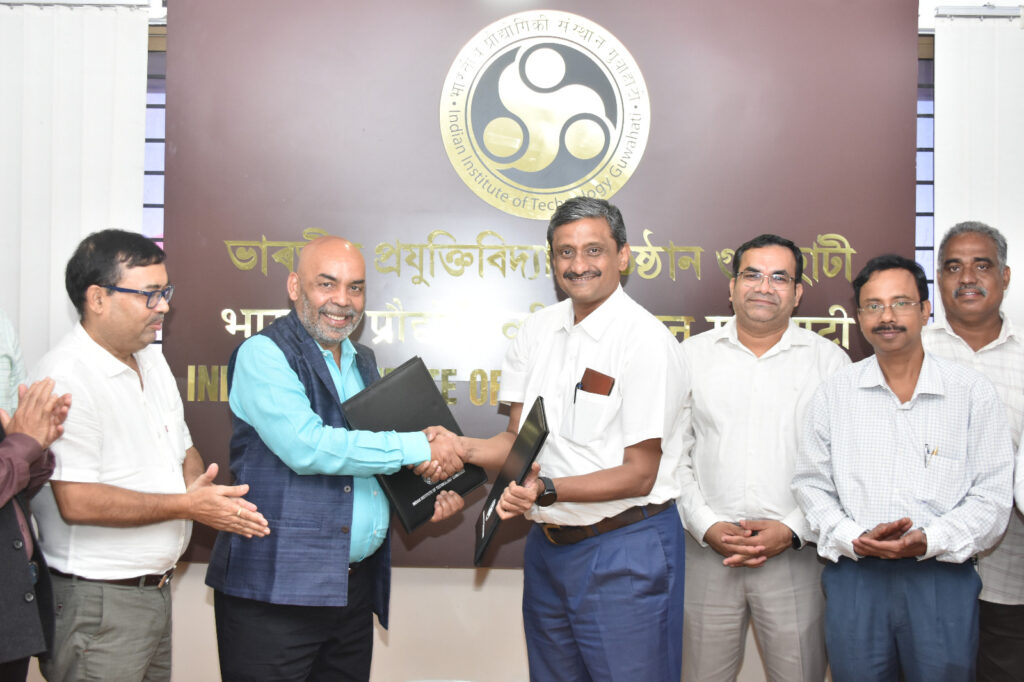GUWAHATI: Tezpur University on Thursday signed a memorandum of understanding (MoU) with the Indian Institute of Technology (IIT) Guwahati to explore collaborations in areas of Bioscience and Bioengineering, Physical Sciences, Design, Civil Engineering, Climate Change and Air Pollution, Artificial Intelligence, High-Performance Computing, Energy Science and Engineering etc.
“IIT Guwahati signed MoU with Tezpur University for #Academic and #Research #Collaboration today. The MoU was signed between Prof. @piyer73 Officiating @DirectorIITG, and Prof Shambhu Nath Singh, VC, Tezpur University at @IITGuwahati,” IIT Guwahati wrote on X (formerly Twitter).
IITG director Prof Parameswar K Iyer and Tezpur University vice-chancellor Prof Shambhu Nath Singh at IITG premises signed the MoU.
Before the signing of the MoU, faculty members of both institutions engaged in a brainstorming session to explore thrust areas of cooperation and various modalities to execute them.
The session was led by Prof IITG dean (research & development) Bimal Katiyar and TU dean (research & development) Prof Dhanapati Deka.
During the session, Prof Aditya Narayan Panda, Head, Department of Chemistry, Prof KaustubhaMohanty, Head, Department of Chemical Engineering, and Prof Roy P Paily, Head, Department of Electronics and Electrical Engineering highlighted IITG’s core areas of research.
From Tezpur University, Prof Partha Pratim Sahu, dean, School of Engineering, Prof Sankar Chandra Deka, Dept of Food Engineering & Technology, Prof Robin Doley, Department of Molecular Biology and Biotechnology and Dr Utpal Bora of Department of Chemical Sciences presented the focus areas of Tezpur University.
TU VC Prof Shambhu Nath Singh said the signing of the MoU is the beginning of an exciting journey of collaboration, discovery, and growth.
Singh added that both Tezpur University and IIT Guwahati are renowned for their academic excellence and coming together of these two institutions will not only strengthen the academic and research landscape in the northeastern region of India but will also contribute to the overall growth and development of the nation.
Welcoming the initiative, Prof Iyer said that it was the need of the hour that both institutions officially join hands to foster interest-led research collaborations to deliver cutting-edge technology, innovative research projects, and sustainable solutions.
He urged all stakeholders to explore opportunities so that the region is benefitted from this collaboration.


